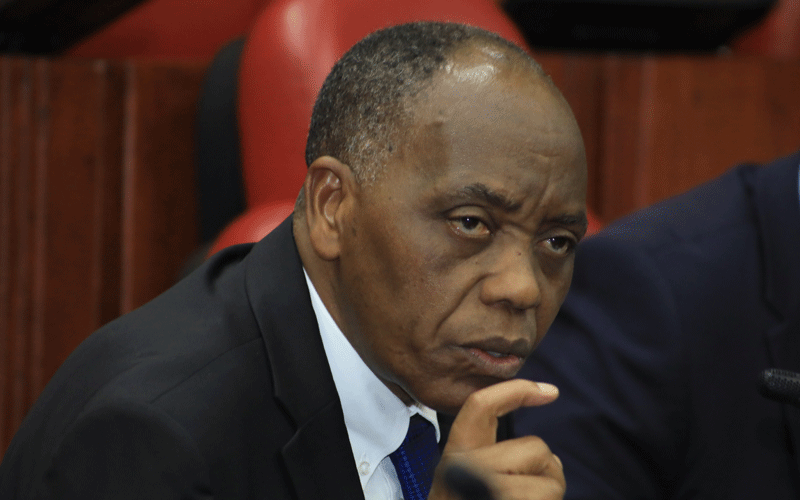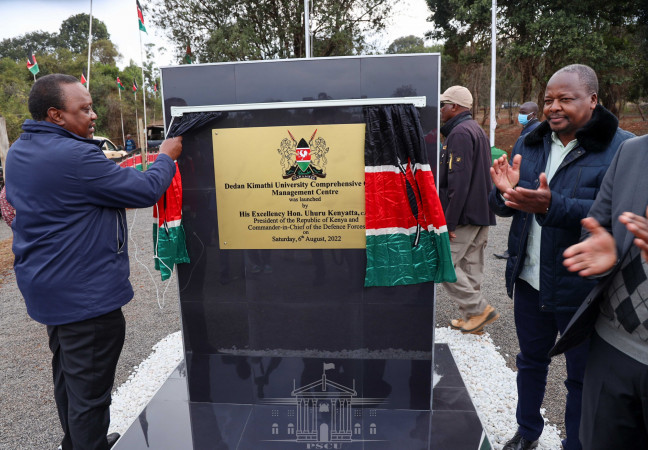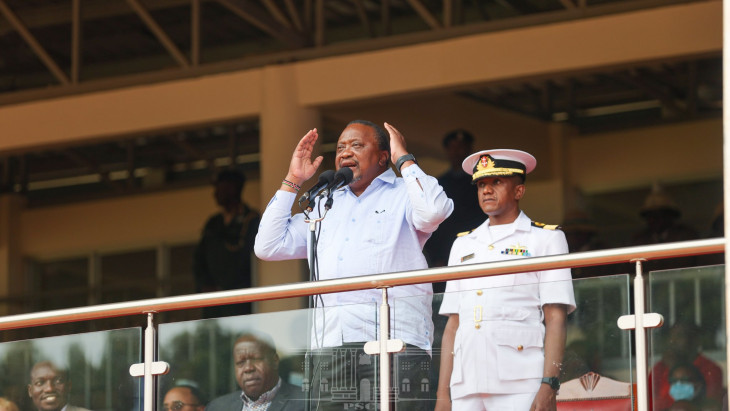There’s no vacuum as CSs go on recess, says Kinyua

Head of Public Service Joseph Kinyua yesterday downplayed talk of an impeding reorganisation in government after President Uhuru Kenyatta asked CSs and PSs to proceed on a 11-day leave.
Kinyua said members of the Cabinet do not enjoy ‘leave’ in the traditional sense, which informed their 11-day working recess now granted to them.
Kinyua declared President Uhuru’s confidence with the membership and capacity of his Cabinet and the senior ranks of the Executive.
He also said the President is confident with members’ of the Cabinet individual and collective ability to support in the delivery of his agenda for the nation, as he continues to steer Kenya further along the path of transformation.
“It is important to underscore that members of Cabinet and their colleagues across the senior ranks of the Executive do not enjoy ‘leave’ in the traditional sense.
Accordingly, the President is convinced that short Cabinet working recesses will enable Cabinet to deliver on its mandate with renewed energy whilst being accorded an opportunity to connect with their families and our shared heritage,” explained Kinyua, in a statement.
Working recess
Kinyua said the Cabinet now joins Parliament and Judiciary in implementing periodic working recesses, with the inaugural Cabinet Working Recess, commencing today and will end on August 28.
Despite the recess, Kinyua assured that delivery of Government services will continue uninterrupted.
“Following various media reports regarding the 2020 Calendar of Cabinet and its Standing Committees, it is notified for general information of the public that the President Uhuru acceded to the request of Cabinet and granted approval to the 2020 Calendar of Cabinet and its Standing Committees, covering the Financial Year 2020/21,” explained Kinyua yesterday.
During the working recess, Kinyua said the Cabinet, Cabinet and Technical Committees will not have scheduled engagements unless otherwise directed by the President for urgent business, cases of national emergency, or any other exceptional circumstances.
Members of Cabinet shall be allowed to take leave from office, subject to the prior approval of the President.
Kinyua also stated that the introduction of Cabinet Working Recess recognises the busy schedule of Cabinet and the heavy demands of State Office placed on Members of Cabinet and their colleagues across the senior ranks of the Executive.
He said that the Executive Order No. 1 of 2019 established National Development Implementation and Communication Cabinet Committee (NDICCC) as a standing committee of Cabinet, supported by the National Development Implementation Technical Committee (NDITC) comprising Principal Secretaries.
The Cabinet Committee (NDICCC) and the Technical Committee (NDITC) convene weekly on Tuesdays and Thursdays, respectively.
Last year, Kinyua said each of the Committees met 42 times and notwithstanding the disruptions caused by the Coronavirus pandemic this year, they have thus far met 26 and 27 times, respectively.
As administration continues to implement the “Big-Four”, Kinyua said that the recess seeks to give Members of Cabinet a scheduled break from weekly Cabinet Committee Meetings as well as time to conduct working tours, site visits and field engagements with members of the public regarding ongoing State programmes and projects.
“The Cabinet calendar is issued in recognition of the unique role of Cabinet as the Nation’s apex policy organ, and conscious of the role of Cabinet Committees and Technical Committees as the framework that institutionalizes the delivery cycle of State Projects and Programmes,” he said.
Cabinet calendar
The Cabinet calendar, he added, is in tandem with the practice within the Commonwealth and heralds a new tradition in the management of Cabinet business.
The recess has however caused anxiety in the Cabinet.
Earlier in the month, President Uhuru hinted to reorganising his government, where he would make more youthful appointments especially to Chief Administrative Secretaries (CAS) positions.
In January, the President appointed youthful CASs who he described as trainee ministers, in a move seen to discredit the narrative by his critics that is government is for the old people.
Uhuru said the new CASs, some of whom are below 30, would work with, and understudy their more experienced colleagues in government with the aim of readying themselves to assume senior leadership positions in the near future.
“I expect that these young trainee ministers, so to speak, will model to their fellow young people the high ideals of patriotism, excellence in public service and most of all, integrity.”
Among the youthful CASs appointed then were Zack Kinuthia (Education), Dr Mercy Mwangangi (Health) and Ahmed Abdalla (ICT).
Last week, the President said: “I will be adding a fairly good number of young CASs to the Cabinet very soon so that we can have targeted interface between you and the government.”













